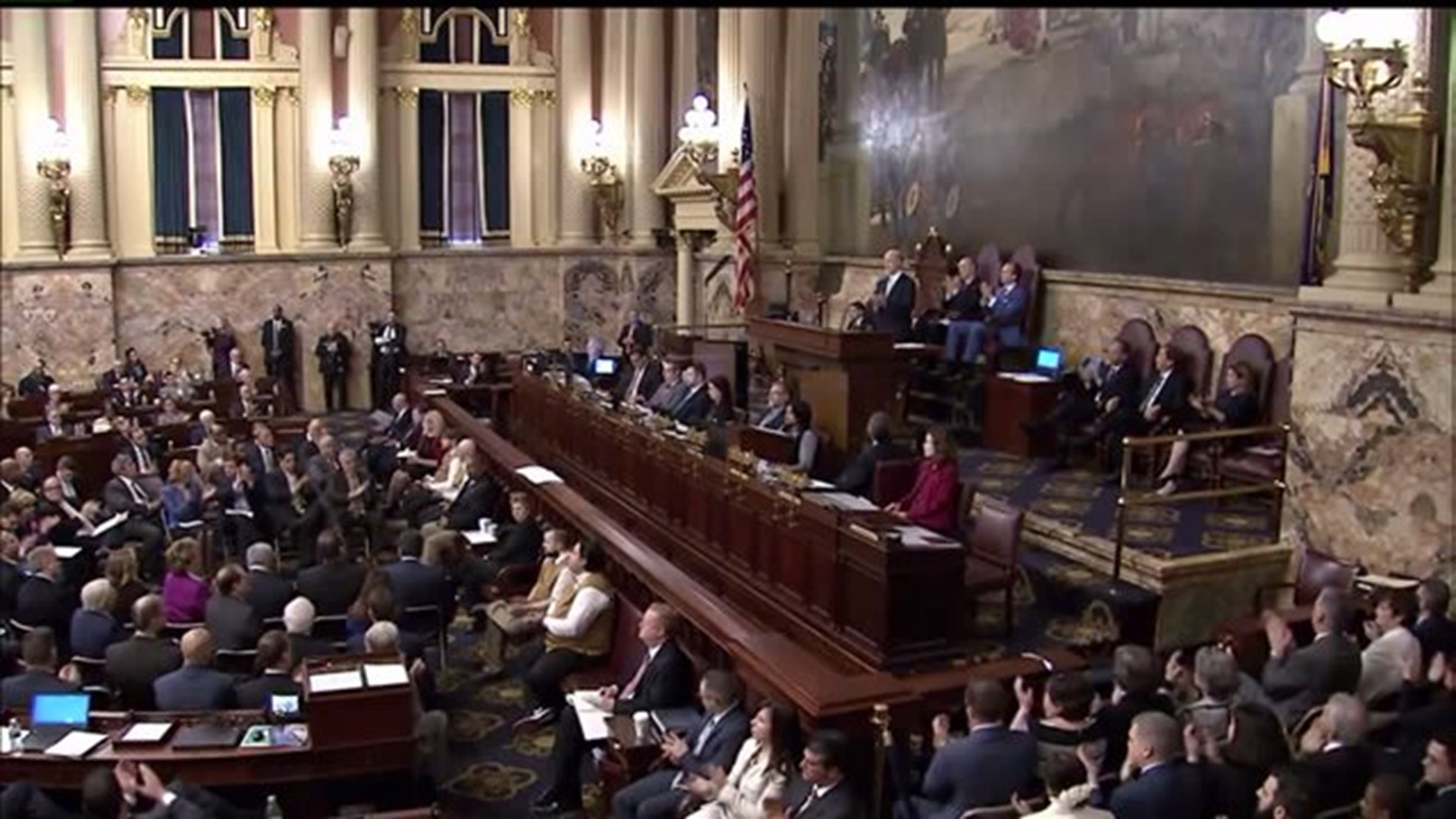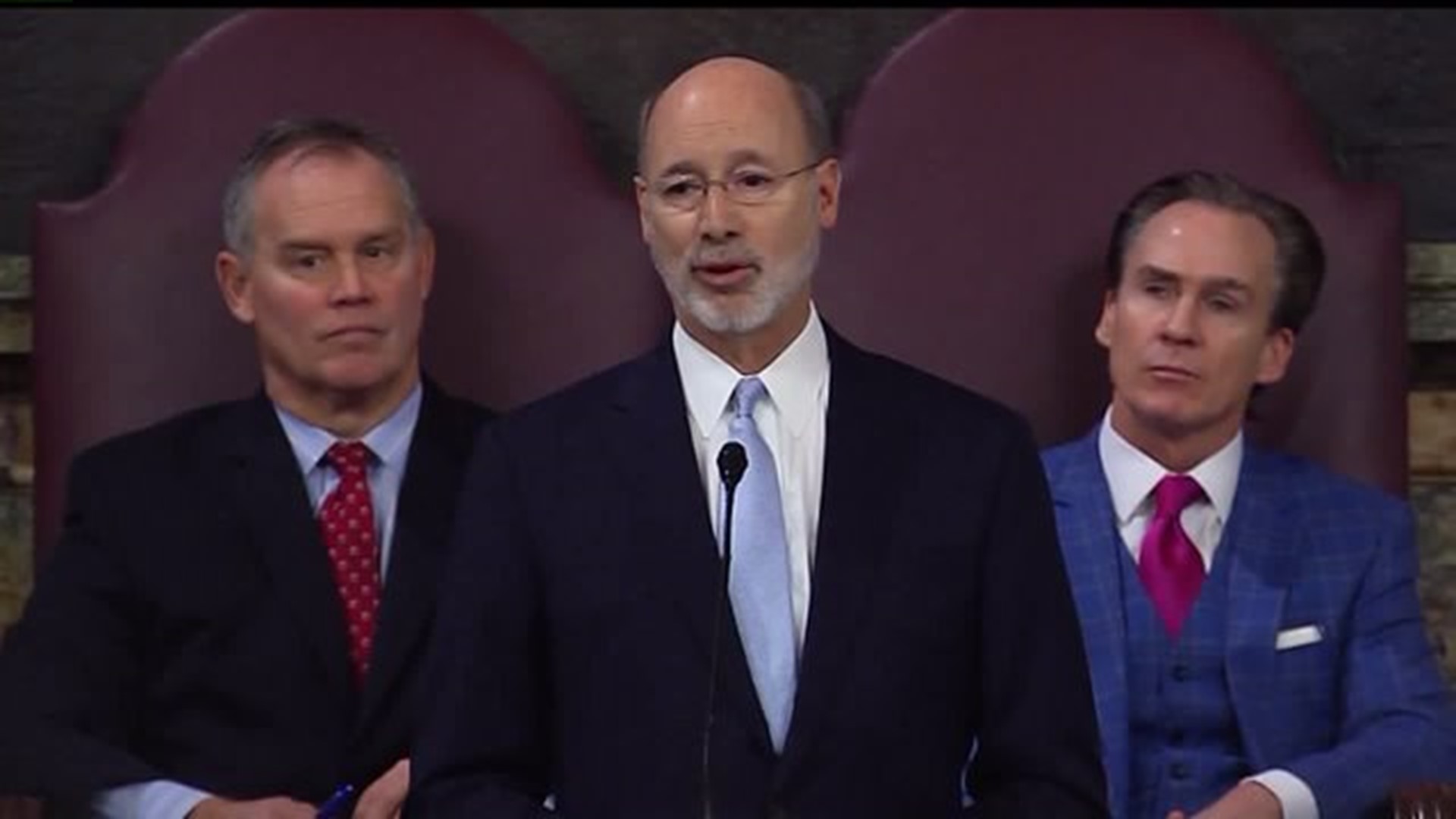Wolf's 2017-18 budget proposal is a $32.3 billion spending plan, which is a $575 million increase over last year, when the governor criticized Republican lawmakers for walking away from a budget agreement weeks earlier.
With a current budget in place this time around, Wolf, a Democrat governor, played to the crowd, one of the largest Republican majorities in state history.
"In my proposed budget, there are no broad-based tax increases," Wolf said to a round of applause.
However, he still wants to increase education spending by $200 million, add $10 million to the fight against heroin and opioid addiction, and generate a $12 minimum wage, all while reducing the state's $3 billion deficit.
How does Governor Wolf plan on making up that distance?
For one, he said in his joint session address, his office found $2 billion in savings throughout state government. Wolf wants to consolidate four of the state's health-related departments (Health, Human Services, Aging, and Drug & Alcohol) into one. He also wants to incentivize state workers to retire early.
While there are no broad-based taxes, like sales and income, Wolf plans on making up the final $1 billion through other taxes. For third straight year, he'll attempt to get a 6.5% severance tax on Marcellus Shale, which he estimates would bring in $300 million. Other revenue generators include closing tax loopholes, and leasing out the state's Farm Show complex.
Wolf also wants small towns across the state, which currently use the Pennsylvania State Police as its full-time police force, to pay a $25-per-person fee. While Wolf did not mention the plan in his address, his budget secretary, Randy Albright, said it was a way for the municipalities, which weren't paying for State Police use, to pay their "fair share."
"Innovations like these are only possible if we continue to move past the budget battles that have paralyzed Harrisburg for far too long and take a different approach," Wolf said.
Republicans remain cautiously optimistic, if not hopeful, given Wolf's tone.
State Representative Stephen Bloom (R-Cumberland) said the decision to consolidate state agencies is what stood out the most for him and his constituents.
"I feel like the governor is finally recognizing what hardworking taxpayers have been recognizing for year, that state government is too big," Bloom said. "I'd like to work with any governor who wants to make government smaller and more efficient."
For many others, including Bloom, the budget failed to address what some called 'the elephant in the room': Pennsylvania's rising pension debt.
It's currently at $74 billion and rising, and there was no mention in the governor's address of any attempt to reform.
"The problem is right in front of us. It's pensions. It's long term costs," said Senate Majority Leader Jake Corman (R-Centre). "We can do all the things the governor suggested and we'll be right back here looking at a deficit."
While other Republicans, like Senator Scott Wagner (R-York), who is running for governor in 2018, feel Wolf's ideas were not genuine.
"He's changing his sales pitch so he can land the account but we've had enough of that," Wagner said. "He's a failed governor and he needs to go."
Budget hearings begin in both the House and Senate in late February.


